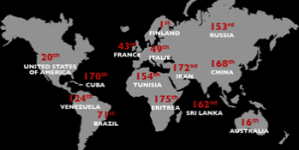Dear Friends,
Tomorrow you will see a new entry on The New Jew, but tonight I have a special present for you. This is my first week as a lender-donor on Kiva and I’ve found it to be such an interesting, fulfilling experience. I want you to join me.
The Offer
So here’s my offer, I will give a Kiva gift card worth $25 to the first three people who comment here and say they want to try micro-lending for the first time. My only conditions- and I won’t hold you to them, it’s only a contract you are making with yourself- are that:
- If you like the experience of lending, you write and tell me why
- You give a gift card to someone whom you think would likewise enjoy it
So who are my top prospects right now? I’m looking at Medhi, Evelyn.
Meet Mehdi (Salam Wa Aleikum, Mehdi)

Mehdi has one day left on his loan- at time of writing, $250 is needed- to help him expand his fruit and vegetable business. He is interested in expanding his offerings, and hopes the loan will help grow his business, and therefore help him better support his family, whom he cares deeply about.
Here’s how Kiva gets you with the urgency (see graphic). 
Note:
Funding Mehdi was my first longer term loan. Up until now, I have strongly preferred loans that are coming due in the short term (i.e. this fall). Something you should know is that all lenders are refunded at the same time, incrementally. You don’t get one final amount back at the end, but you’re refunded small amounts according to the borrower’s payment schedule, which is outlined in detail at the bottom of the screen.
— Keep Reading: Meet Evelyn; Will You Say Yes? —




 Posted by Maya Norton
Posted by Maya Norton 











